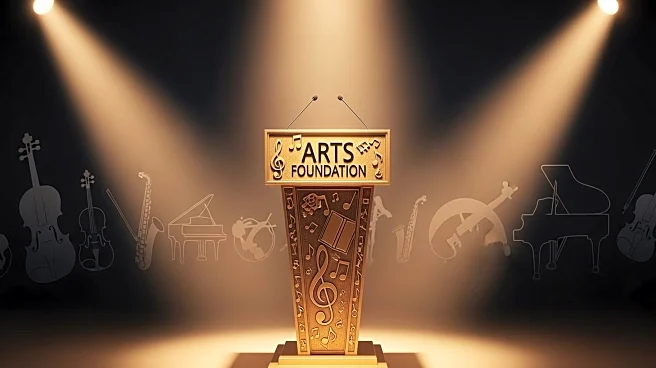What's Happening?
Josh Groban, a renowned singer and actor, has been actively involved in philanthropy through his Find Your Light Foundation, which he established in 2004. The foundation aims to provide high-quality arts
education to students across the United States. Recently, the annual Find Your Light Benefit Concert raised a record $1.5 million, surpassing last year's $1.4 million. The event featured performances by artists like Norah Jones and Terence Blanchard and honored authors Susan Magsamen and Ivy Ross for their work connecting creativity and learning.
Why It's Important?
The foundation's efforts are crucial in addressing the decline of arts education in the U.S., exacerbated by government funding cuts. By supporting arts programs, Groban's foundation fosters creativity and self-expression among students, which are essential for personal development and resilience. The record fundraising highlights the importance of philanthropy in bridging gaps left by public funding and underscores the role of arts in education. This initiative benefits students, educators, and communities by enriching educational experiences and promoting cultural engagement.
What's Next?
Groban's foundation plans to continue expanding its reach and impact, aiming to support more arts programs nationwide. The focus will remain on addressing 'arts education deserts' and collaborating with other organizations to maximize resources and outreach. Future benefit concerts and fundraising efforts will be crucial in sustaining and growing the foundation's initiatives. The foundation's success may inspire other artists and philanthropists to invest in arts education, potentially leading to broader support and advocacy for the arts.
Beyond the Headlines
The decline in arts education raises broader questions about educational priorities and the role of creativity in learning. Groban's foundation challenges these trends by emphasizing the transformative power of the arts. The initiative also highlights the potential for private philanthropy to influence public policy and educational practices, encouraging a reevaluation of funding priorities and the integration of arts into curricula.









